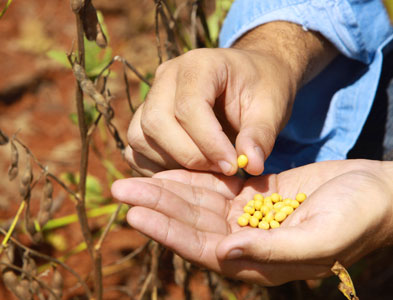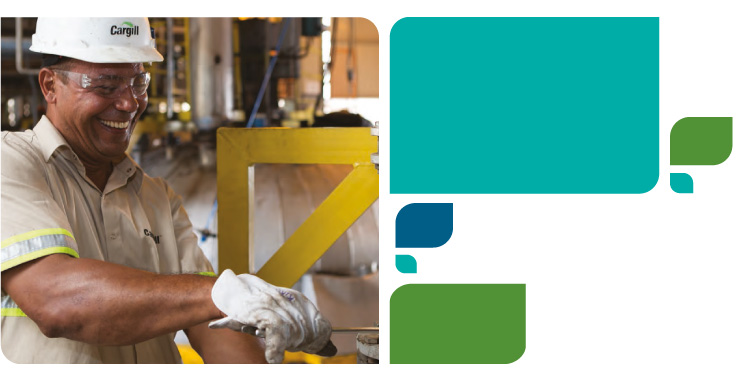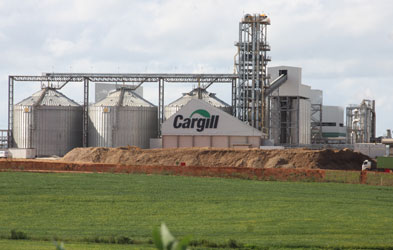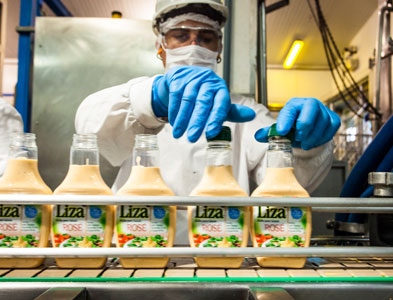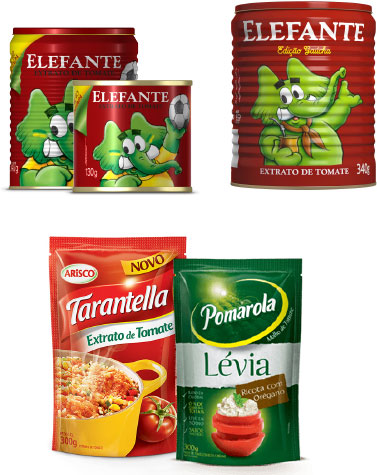Cargill and Copersucar, a Brazilian trader of sugar and ethanol, received all regulatory clearances to form Alvean in 2014. The new joint venture is a 50/50 partnership between the two companies and will originate and trade raw and refined sugar on a global basis. The operation will be based in Geneva, Switzerland, and will have offices in Brazil, China, United Arab Emirates, Spain, India, Indonesia, Russia, and Thailand.
Click here for more information.
Expansions
Throughout 2014, Cargill invested heavily in its production lines to boost operational efficiency. The company has increased production capacity of refined oils and vegetable fats at the Itumbiara (GO) and Mairinque (SP) plants. It has also started investing R$240 million to expand the Santarém (PA) river terminal. The upgrade will increase annual shipping capacity from two to five million metric tons.
In November 2014, authorities issued the installation license for the Cargo Transshipment Station (ETC) in the Miritituba district of Itaituba (PA), an investment of R$200 million.
New products
New products were added to the tomato line in 2014. To celebrate the FIFA World Cup happening in Brazil, the Elefante brand of tomato paste was sold with a special packaging. The 130 g and 140 g cans featured dedicated artwork with the famous elephant character, Jotalhão. Brazil’s favorite elephant was also present in the celebration of the Farroupilha Revolution, in the state of Rio Grande do Sul. A special edition of the 340 g can distributed only in Rio Grande do Sul featured Jotalhão wearing the typical gaucho trousers.
In order to provide better-balanced food, Cargill reduced the amount of sodium and calories in the Pomarola Lévia product line. Packaging was also redesigned to have a fresher look
The company also launched the Receitas +, which combined two well-known and well-liked brands by adding Gallo olive oil to Pomarola
tomato sauce.
The Tarantella line of tomato products also expanded its portfolio in 2014. The brand introduced a fine herbs flavor and added a new product to its line, tomato paste.
As part of its strategy to expand in the food service category, Cargill now sells Pomarola, Tarantella, Elefante, and Pomodoro products through that segment.
Revitalization
In partnership with ConAgra Foods, one of North America’s largest food companies, Cargill is now distributing Hunt’s condiments, including ketchup, mustard, barbecue sauce, and Act II microwave popcorn. The Hunt’s line is produced in the United States and Act II popcorn is produced in Brazil. By distributing these products, Cargill is offering Brazilian consumers high-quality products and two brands that are leaders in several countries.
Solutions for the customer
Every year, Cargill reinforces its commitment to thrive alongside its business partners across different industries. In 2014, for instance, it helped CPFL Energia, an energy utility, migrate its distribution network to green electrical transformers that use Envirotemp™ FR3™ vegetable fluid. In addition to being less harmful to the environment, the Cargill vegetable fluid performs better than mineral oil and has a fire point twice as high as regular fluids, which improves fire safety.
The company has also invested in a fleet of vehicles to ensure quality delivery of soybean meal at BRF’s feed plant in Uberlândia (MG). This project was supported by Cargill Transportes, which was established in 2013 to improve and optimize company logistics. The initiative to serve customers using Cargill’s own fleet of trucks is based on
four pillars:
Food Safety | The use of new trucks, dedicated to BRF, and strict cleaning standards have reduced the possibility of product contamination during transportation.
Service Level | A logistics team focused on productivity metrics ensures uninterrupted supply to the client.
Safety | Trained drivers and safety equipment provide high levels of personal and property safety.
Sustainability | Double trailer trucks can carry a net cargo of 47 metric tons and use advanced diesel engines, which ensures lower emission of greenhouse gases per ton transported.
Supported by Scania, a truck manufacturer, Cargill selected the drivers using an award system (MMCB). The selected drivers attended safety workshops and a special training program provided by Fundação Adolpho Bósio de Educação no Transporte (Fabet). The purpose was to train drivers and transmit the company’s partnership culture. Additionally, Cargill trucks are fitted with telemetric tracking systems, which lets management monitor each phase of the operation (loading, travel, and unloading) and adds operational efficiency and safety.
